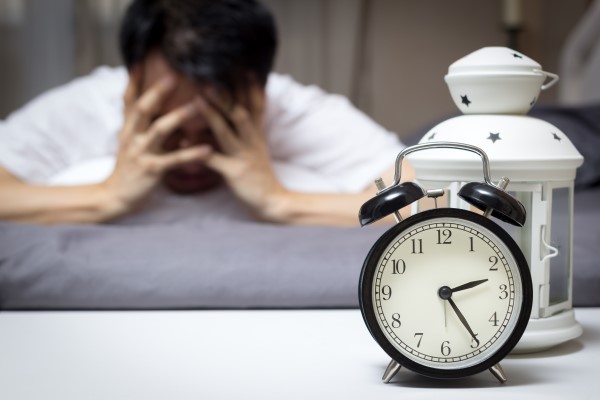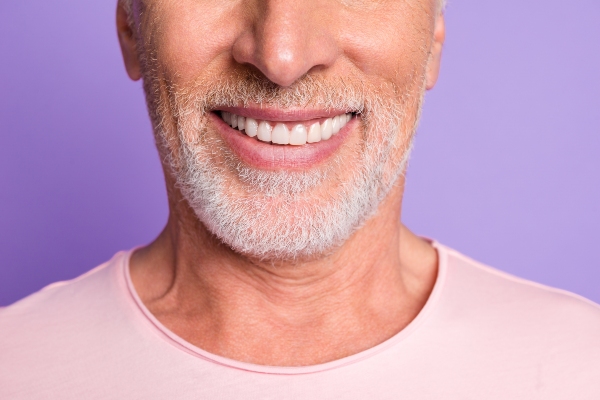Causes of Sleep Apnea

Sleep apnea is a condition that impacts your ability to breathe normally while sleeping, causing abnormal breathing patterns which lead to pauses in breath. While this condition is extremely common, it’s important to be aware of its causes and available treatments.
There are both temporary and lasting health impacts tied to this condition, ranging from minor inconveniences to major health risks. At the very least, those who suffer from this condition often have low quality sleep, which can lead to fatigue and other negative mental side effects. However, lower oxygen levels, caused by the pause in breath, are a serious health risk and can result in cardiovascular issues, including heart disease, stroke, and heart attack.
Types of sleep apnea
While there are three main variations of this condition, each type has slightly different underlying causes and treatment options. If you are having trouble breathing while sleeping or your partner notices intense snoring or gasping during the night, your doctor will help determine if you suffer from a form of apnea and what the best treatment type is.
- Obstructive sleep apnea (OSA) is the most common type that occurs when throat muscles relax, leading to a narrowed or closed airway.
- Central sleep apnea (CSA) occurs when the brain neglects to send signals to the muscles that control breathing.
- Mixed sleep apnea syndrome is a combination of obstructive and central apnea and is typically the most difficult to diagnose and treat.
Defining the causes
OSA occurs when airways are blocked during sleep and can be caused by a wide variety of factors; some controllable and others not. Controllable factors include obesity, smoking, alcohol consumption, and sleeping position. According to the Sleep Foundation, a 10% increase in weight can lead to a six-fold increase in the probability of developing this condition. Another common and controllable cause is the use of alcohol, which causes the tissue in the throat to relax, allowing for the airway to become obstructed.
On the other hand, there are causes that cannot be corrected by behavior changes. These factors include the size and position of the neck, jaw, and tongue, family history, hormone irregularities, and general congestion. Whether the cause is controllable or not, most cases are due to the impact of tissue near the back of the through swelling or negatively impacting the airway. OSA can typically be treated by lifestyle changes that combat the causes, such as losing weight, quitting smoking, and cutting back on alcohol consumption.
CSA occurs when the brain has issues communicating with the muscles that control breathing and is typically attributed to a prior underlying medical condition or a substance that interferes with the brain’s signals, such as opioids. Treatment for CSA involves identifying and treating the underlying health issue that is causing the brain to miscommunicate with the muscles required for breathing.
Whether you suffer from OSA or CSA, there are many treatment options to explore, though most people can combat the negative symptoms through lifestyle changes that ultimately lead to an overall healthier lifestyle.
How a dentist can help
If you suffer from sleep apnea, then you may want to discuss your options with your dentist. A dentist can provide oral appliances that may help reduce the symptoms associated with sleep apnea and get you back to a restful night's sleep.
Request an appointment here: https://www.newyorkdentaloffice.com or call New York Dental Office at (212) 548-3261 for an appointment in our New York office.
Check out what others are saying about our dental services on Yelp: Do I Have Sleep Apnea in New York, NY.
Recent Posts
Are you looking for CPAP alternatives to treat your sleep apnea? Obstructive sleep apnea is a common condition that impacts millions of individuals all across the globe. Due to this condition, the patient’s airway closes while they are asleep. This can lead to symptoms like difficulty staying asleep throughout the night, snoring, morning headaches, and…
Seeking treatment for sleep apnea is important for your general health. Your general dentist can detect signs of this sleep disorder during a comprehensive dental exam. The sleep doctor can work with your dentist to correct the problem. Here are the details about when to see a dentist for sleep apnea.This sleep disorder makes a…
If you have sleep apnea, it might at first seem like more of a nuisance for your partner than for you, especially if your primary symptom is snoring. Is it a good idea to find a solution that merely minimizes the effects on your sleeping partner — such as noise-canceling earbuds to mask the sound…
Sleep apnea is a sleeping problem in which breathing stops and begins intermittently. People with the disorder cannot obtain a proper night's sleep and are tired during the day. Fortunately, the condition can be treated by seeking the dentist's assistance.The following are questions to ask a dentist about sleep apnea:This type of sleep apnea is…



